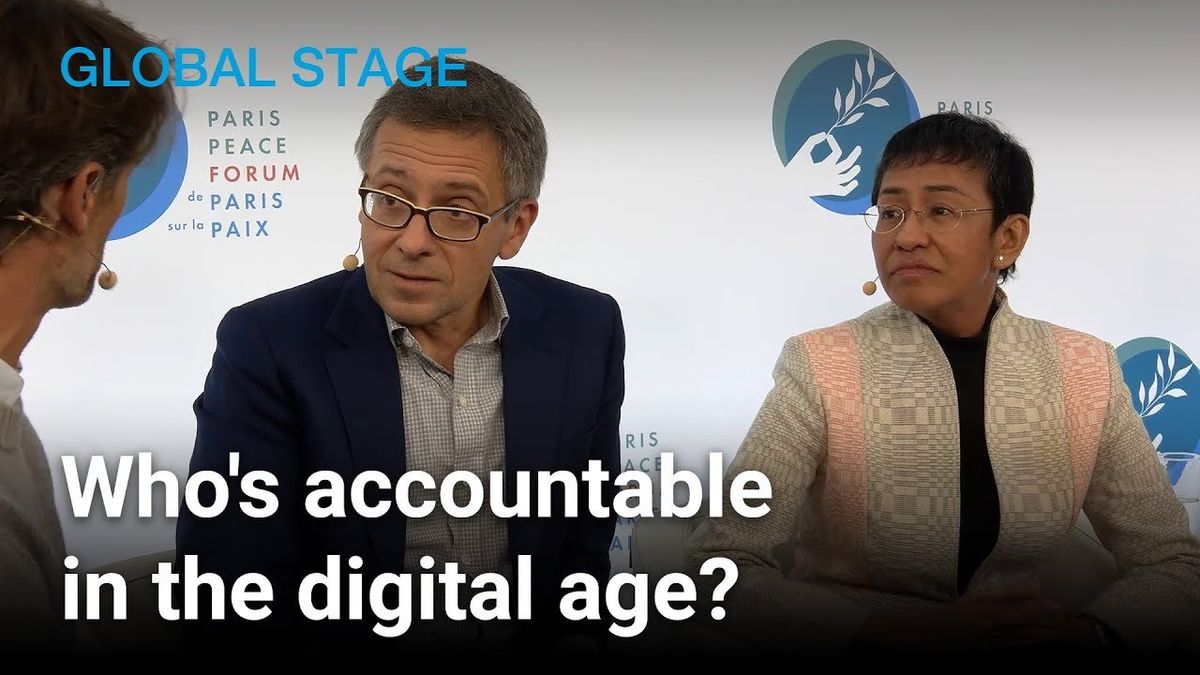How do you keep guardrails on AI? “In the United States, historically, we don't respond with censorship. We respond with lawyers,” said Ian Bremmer, President and Founder of the Eurasia Group & GZERO Media, speaking in a GZERO Global Stage discussion live from the 2023 Paris Peace Forum.
Setting up basic legal structures around artificial intelligence is the first step toward building an infrastructure of accountability that can keep the technology from doing at least as much harm as good.
The European Union has an early lead in setting up systems, but Rappler CEO Maria Ressa said, “the EU is winning the race of the turtles” as the entire globe lags far behind the pace of technological advancement. Without legal structures and a healthy free press and civic society in place, democracies will struggle to remain resilient to the threats of AI-generated disinformation.
The livestream was part of the Global Stage series, produced by GZERO in partnership with Microsoft. These discussions convene heads of state, business leaders, technology experts from around the world for critical debate about the geopolitical and technology trends shaping our world.
- How are emerging technologies helping to shape democracy? ›
- Podcast: Artificial intelligence new rules: Ian Bremmer and Mustafa Suleyman explain the AI power paradox ›
- The AI power paradox: Rules for AI's power ›
- AI and data regulation in 2023 play a key role in democracy ›
- Ian Bremmer: How AI may destroy democracy ›
- Paris Peace Forum Director General Justin Vaïsse: Finding common ground - GZERO Media ›
- At the Paris Peace Forum, grassroots activists highlight urgent issues - GZERO Media ›
- AI is an opportunity to build trust with the Global South: UN's Amandeep Singh Gill - GZERO Media ›
- Ian Bremmer: On AI regulation, governments must step up to protect our social fabric - GZERO Media ›

















